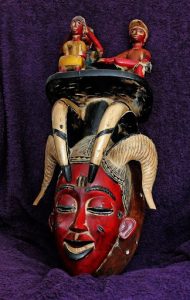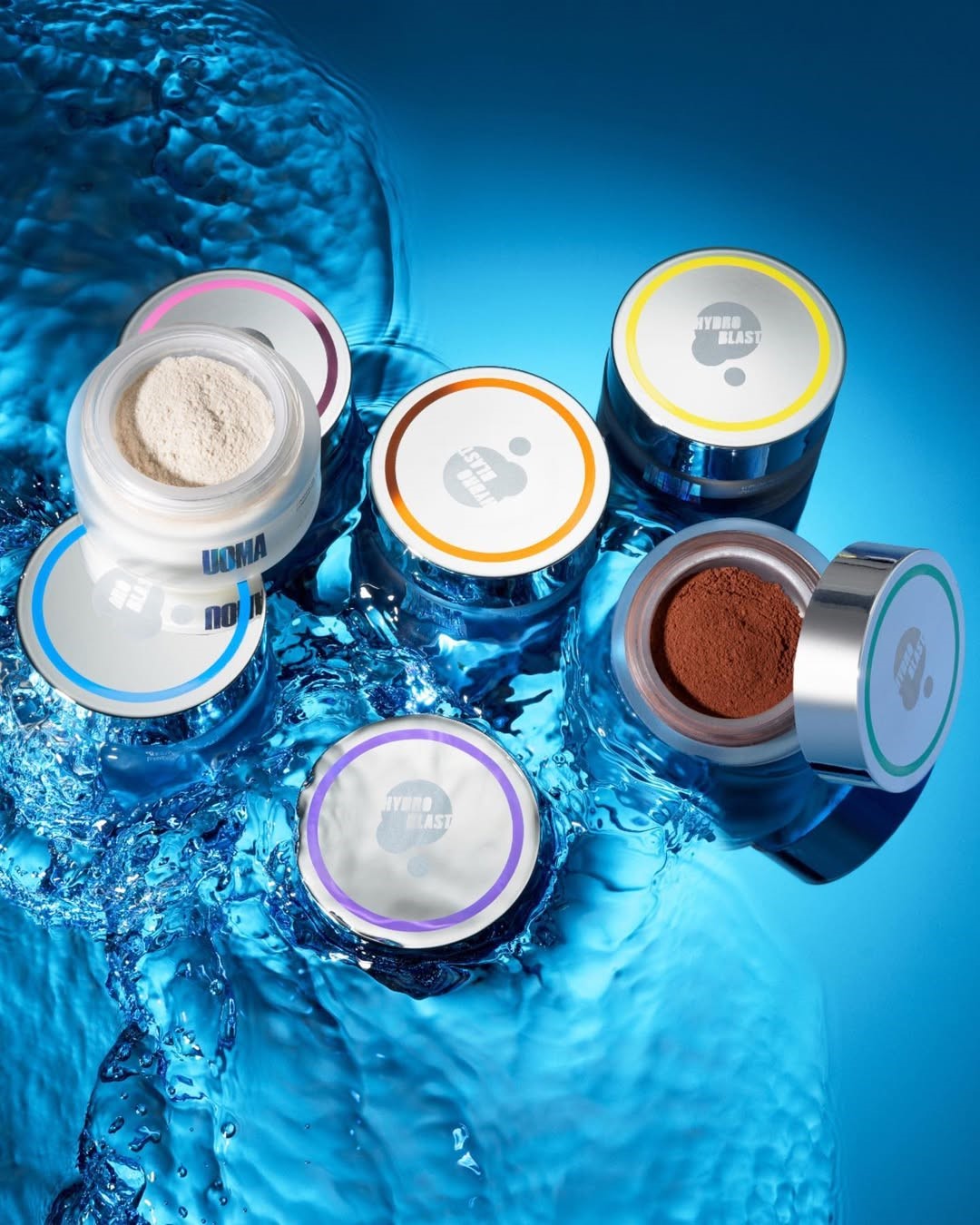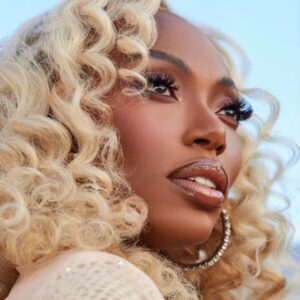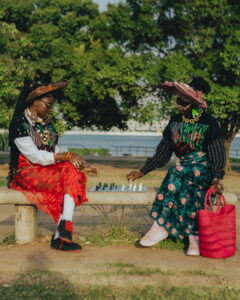
Written by Kemi Adedoyin
Sharon Chuter never accepted invisibility. Born in Nigeria, she grew up in a culture where beauty was abundant yet rarely reflected on global shelves. Darker skin was treated as an afterthought, an inconvenience in a world that claimed to sell glamour. That early dissonance stayed with her and became the fire that reshaped beauty.
Before founding her own brand, she carved a career across the industry’s most powerful corporations – L’Oréal, LVMH, Revlon, PepsiCo. At Revlon, she even convinced the company to distribute its products in Nigeria, a move that signaled her influence. But inside those glass towers, Sharon confronted a truth too many ignored, one where diversity was marketing copy, not policy.
And she refused to play along.
“If I know my company is wrong and I still work for them every day, I’m just as culpable,” she said.
That refusal became the seed of her revolution.

UOMA Beauty – A Manifesto in Makeup
In 2019, Sharon launched UOMA Beauty from the Igbo word oma, meaning “beautiful.” From day one, it wasn’t designed to fit neatly into the beauty aisles. It was designed to rip them apart.
The debut included 108 products, headlined by Say What?! Foundation in 51 shades across six undertones. For the first time, foundations weren’t just more shades of beige, they were engineered to meet the needs of every undertone, from the fairest ivory to the deepest ebony.
Her mission, which was all about inclusivity, was not just a trend; it was non-negotiable.

“UOMA Beauty is where people can really come and be themselves,” Sharon wrote on Instagram. “We don’t say we don’t see color, we absolutely see color. Because color is beautiful.”

UOMA was loud, unapologetic, African in spirit, global in reach. Even UOMA lipsticks were named after Black female icons like Maya (Angelou), Eartha (Kitt), Sade, Miriam (Makeba), Diana (Ross). These were women who shaped culture, stirred generations, and stood as symbols within the black community. Naming lipsticks after them was not just Sharon’s way of honoring them. It was a way of folding their legacy into everyday beauty, letting their legacy live on in the simplest but most impactful ways.

The UOMA x Coming to America campaign wasn’t just a marketing tie-in. It was like a love letter to Black skin, celebrating tones and textures the industry too often ignored.
Activism Woven Into Every Shade
Sharon’s influence reached beyond products. She refused to treat beauty as something separate from politics. When the death of George Floyd caused the world to erupt in 2020, she did not settle for symbols or empty solidarity. While brands were busy posting black squares, she pushed for accountability. This realism birthed the Pull Up For Change movement.
Pull Up For Change began with a challenge that was impossible to sidestep. Sharon asked beauty companies to open their books and show how many Black employees were in their offices, not just in entry roles but at the top where decisions are made. The ultimatum was clear: reveal the numbers within seventy-two hours or risk being exposed by silence. The hashtag #PullUpOrShutUp spread quickly, and suddenly some of the biggest names in beauty were pressed into admitting uncomfortable truths. For an industry that had long profited from Black consumers while locking Black professionals out of power, the reckoning was overdue. Sharon made sure it arrived.
Her momentum carried forward. In 2021 she launched Make It Black, a project that sought to reclaim the word itself while raising money for new generations of founders. Partner brands released familiar products in all-black packaging, with profits directed to the Pull Up For Change Impact Fund. In its first year, the initiative raised close to one million dollars, providing capital and visibility for Black entrepreneurs who rarely had access to either.
What Sharon achieved was more than a viral moment. She turned slogans into systems, and campaigns into resources. She refused to let beauty escape accountability, and in doing so, she changed what power could look like in the industry.
Her Instagram as a Megaphone
Unlike most CEOs, Sharon’s Instagram wasn’t polished PR. It was part diary, part call-to-arms. One day she’d post about burnout and the toll of being a Black woman fighting an industry that didn’t want to change. The next, she’d drop a manifesto about equity and demand better from billi on-dollar brands.
We all didn’t just see Sharon as a CEO, we saw her as a woman fighting in real time for a better world.
The Legacy She Leaves
Even when legal battles later clouded the brand’s future, her voice cut through the noise. She never allowed the industry or the world to retreat into complacency.

Her death at just 38 is a loss so heavy. But the blueprint remains- build bravely, demand accountability, and celebrate color without apology.
Sharon Chuter created a movement that forced beauty to see color, equity, and humanity.
And that is the kind of beauty that doesn’t fade.
Sharon Chuter, 1987 – 2025. Rest in power.








Don’t miss a thing! Sign up to get new content sent directly to your inbox.